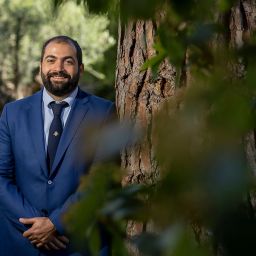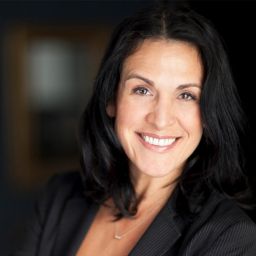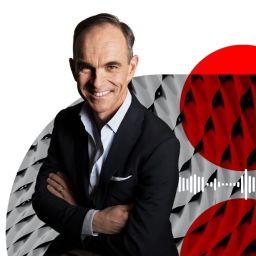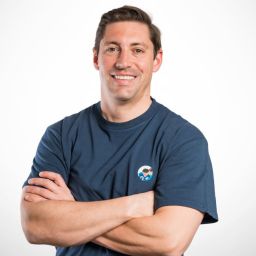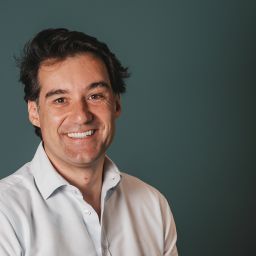In 1890, Kate Sanborn described the entrepreneur’s journey as “1% inspiration, 99% perspiration”. Surely things are different today…
During this episode of the This is Real Leadership podcast series, Dr. Florian Weiss, CEO of Jameda (one of the largest software providers for healthcare) and Professor Sandra Sieber, Professor of Entrepreneurship at IESE Business School (one of the world’s best business schools) – ranked No.1 in the world for six years running by the Financial Times – discuss lessons learned in leadership.
Is building an organization that fosters personal growth the most important aspect of entrepreneurial leadership, and how do optimists survive?
This is Real leadership podcast: Every episode, a business leader shares human stories and hard truths from their career. And an expert turns those stories into lessons we can all learn.
In this episode, Florian and Sandra discuss:
- How to leave space for productive magic
- How to navigate paranoid optimism
- How to learn from failure
- Key leadership paradoxes
Listen to this podcast:
Listen & subscribe on:
Spotify Apple podcasts Amazon podcasts
Fore more content like this visit the Real Leadership website.
Podcast transcription:
Adam:
Hello, and welcome to This is Real Leadership. Where, every episode, a brilliant guest shares human stories and hard truths from their career as a business leader. And an expert turns those words into lessons we can all learn. I’m Adam Burns. I’ve been talking and writing about business leadership for over 25 years and I still have a lot to learn. Which is why, in this podcast, I’m also joined by that expert – a distinguished professor from IESE, one of the world’s best business schools – ranked number 1 in the world for six years running by the Financial Times. They’ll also be talking with our guest. And then, just with me. Offering their expert analysis of the conversation as I ask: what are the real leadership lessons here? What are the things that can have a positive impact on ourselves, the people around us, our companies and society as a whole? No buzzwords. Real people, real talk. Welcome Professor Sandra Sieber.
Sandra:
Hello Adam.
Adam:
Now, this episode, Sandra, is about mistakes made and lessons learned as an entrepreneur. You are IESE’s Professor of Entrepreneurship. What is the biggest lesson you’ve learned?
Sandra:
My biggest lesson learned, actually, is to never give up. So, even in a tough situation, find the positive. See a way out and, get yourself out of it. You have to put your heart into it. You have to put your soul into it and say, “I’m not giving up. I’m coming up with a plan, and I will make things better”. It’s my firm belief that you create the future that is ahead of you.
Adam:
Never give up. So, who is our guest? Dr. Florian Weiß is the CEO of Jameda, Germany’s biggest platform for patients and doctors, and one of the largest providers of software for the healthcare industry. Jameda started with a staff of 20. Today, it has more than 400. And Florian says building organizations that foster personal growth is probably the most important aspect of leadership.
We ask Florian about the moments in his career that have taught him the most. But we start with the real person behind the job title.
—
Florian:
It’s not an easy question, to define yourself. But, if I had to pick one characteristic, I would say I’m an optimist at heart.
Sandra:
And, I know you used to be a consultant before you became part of the entrepreneurial landscape. Was that the reason why you moved away from consultancy? Was there something missing there, something which you can find in these more uncertain and ambiguous spaces that exist when we’re creating new ventures?
Florian:
It certainly has to do with that. So, I’m fine with my consulting background. I owe a lot to my consulting career. But, if you do have a genuine interest in people, and if you want to be a leader, I would say consulting is probably not a good long-term choice as a career, because you don’t build organizations. Yes, you do have teams, but they’re rather small. And you have teams of people who are highly motivated, who will always be running all the way to the finish line, which is cool. But I think the really interesting thing about leadership is, how do you inspire people? How do you lead people who are maybe not that intrinsically motivated, who are not running by themselves, who you really have to lead into a position where they recognize their own potential? So, it’s an accumulation of things. But yes, this love for uncertainty does play a part.
Sandra:
And when you have this love for uncertainty, as you say, normally, and this is also what we find here at IESE when we teach, when we are helping people to develop new ventures, we normally also see that they’re motivated by a purpose, right? Which is not just motivating people, but creating something for the world. Something that is different and that has a purpose, which is something that I think you can only find when it’s your venture and when you really sort of… I don’t know. But it motivates people to wake up every morning and say, “Hey, I’m continuing to work on this, which is my thing, my contribution to the world.” How much is this external purpose, together with the internal purpose, this internal motivation you mentioned, important to you?
Florian:
It’s very important. And for me, there are certain dimensions to it. There’s the greater purpose of a company, which probably has to do with having an impact on society. Doing something which the world could benefit from, even if that sounds very big. But yes, that should be the aspiration. But I think there is also purpose in smaller terms. So, even if you don’t change the world every day, you do change the world of the people you work with. And that’s also a purpose. And yes, that definitely is important to me. And it does energize me every day.
Sandra:
And would you link purpose together with the fact that you were saying, “I am an optimist”? I think that it can be difficult, sometimes, in an uncertain environment, or in an environment where a lot of bad things are happening. How do you continue to be an optimist? I think that, in entrepreneurs, we very often see optimists. They are, sort of, convinced that, yes, I can do that. But sometimes it’s hard to motivate ourselves to maintain this optimism. Do you have any things that you do?
Florian:
Well, I think part of being an optimist is probably something in your genes. So, I would say you don’t have to do a lot of work to convince yourself to be an optimist at heart. I think that’s in your genes. But what is certainly true is that, in an entrepreneurial environment, if you start a venture, many things can go wrong every day. So, in a way, you have to be paranoid at the same time. Because if you’re an optimist and it leads you to be complacent or lazy, like, “Hey, things will turn out well, we don’t have to make any effort,” then this is also dangerous. So, my type of optimism in a company is what you could also describe as believing, every day, that we are going to win. And I think that’s very important; to make your team believe, every day, that we are going to win. We, as a company, have been in very difficult situations with other competitors that have a lot more funding. We needed to show that we are smarter, that we can develop better products with less people, that we can do better marketing with less money. And yes, sometimes people doubt that you’re going to be successful. I was always pretty harsh in that respect. So, I always told people something which might sound a bit hard, but I told them, “Hey, if you don’t think we’re going to win, I don’t want you on my team.”
Adam:
This is fascinating to me, because I love this line of paranoid optimism, number one. But I love this sense of, you know, “I am a genetic optimist. I just was born this way, I’m a genetic optimist”. But, obviously, part of leadership, part of business, and you sort of referenced it, is getting the best out of people. What happens in those moments of friction when a genetic optimist meets a genetic pessimist?
Florian:
So, that’s definitely a challenge, because it’s always easier if you surround yourself with people who are just like you. So, a natural environment would be, hey, they are all optimists. Everybody believes that we’re going to win. That’s the easy thing. You don’t really need to be an excellent leader if everybody thinks like you, acts like you, feels like you, and behaves like you. The question is, what if you encounter doubt, and maybe even fear? And I think the best way to deal with this is to fully embrace the other person’s perspective, and to have a genuine interest in, “why are you doubting our success?” Because there might be real, rational reasons behind them being concerned, behind not being optimistic. So, you have to deal with it. You have to put it on the table and spend some time. And yes, sometimes there are situations where you say, “Hey, you know what, maybe it makes sense that we part ways.” In a good way, because this should be a company where people are willing to dare, and where they would like to start a venture. Because, that’s maybe my ultimate thought on this; being an optimist at heart also has its drawbacks, right? So, if I didn’t have people who would correct me all the time, I wouldn’t steer the company in the right direction. You have to have somebody who says, are you sure this is going to work? Maybe we should focus a bit more on working on our weaknesses than just going with our strengths? It’s important to have these types of conversations.
—
Adam:
So, Florian is an optimist, motivated by purpose. And with, as Sandra put it, a love of uncertainty. That, then, is the real person.
The next part of our conversation is about real talk and, specifically, the lessons Florian learned from a communication failure. But it starts in a place of productive magic – somewhere Sandra calls ‘the Marvel zone’…
Florian:
So, I do have this KPI and fact-based analytical background, especially from my time in consulting. But what I found out, and actually, it took me some time to find this out on a personal level as well, is that, the more you understand the world, the less wonder and amazement and awe you have in your world. Because sometimes, everything is categorized, classified, everything is measured, and everything is actually in a rational system. And, at that moment, you lose the magic in your life. So, how does this compare to a company? I would say, yes, it’s the duty of any leader, first and foremost, to be strong in relation to his or her KPI. So, I have to know what’s going on in the company. But, if you imagine for yourself a kind of graph, with an x-axis and a y-axis. On the x-axis, you would have the amount of knowledge about the company, about your competition, about the market. And you start with zero, and you go very far to the right, and you have 100% knowledge. On the y-axis, you have the amount of amazement and wonder in your company. Then, of course, if you have zero knowledge, everybody’s just amazed. Everything is a miracle, because you cannot explain anything; you don’t want your company to be in that place. But, let me talk about the other extreme. You know, where everything can be calculated based on algorithms. Everything is set into KPIs. At that moment, you have zero amazement, zero wonder, zero awe, and, I think, zero identification. At that moment, nobody loves to work in your company, because it’s nothing special. There’s no secret, no magic. So, I gave this kind of zone a name, which I call productive magic. Where you do leave some room for the magic to happen. Not everything is explainable. Not everything will be clear to everybody, but it does inspire people. So yes, being an optimist also means leaving room for magic.
Sandra:
You call it productive magic; we call it the Marvel space.
Florian:
Perfect, love that.
Sandra:
And Marvel is now…I mean, I think it’s also a dream space where our kids go, to see superheroes and superwomen. And it gives us a little bit of that feeling that, hey, I also have a space in my company, not to become the superhero or the superwoman, but to be the one that explores things. Because, when we have ambiguity… And yes, okay, there’s always this paradox; I have my KPIs, but I’m also allowed to explore. And we call it ‘the Marvel space’, so that people can sort of become the superhero, or the superwoman. And probably fail afterwards. That’s fine. But, I think that you create this space. And you mentioned it before. I think, in your company, you’re always looking for people who also have this freedom. So that you can avoid the control trap that we are so used to, and give them a place of freedom.
Florian:
There are always contradictions; it’s always ambiguous. And I think you have to have the courage to live with those contradictions, or apparent contradictions.
Sandra:
We call it here, internally, and actually, there’s literature about this, it’s discovery-driven planning, or hypothesis-driven experimentation.
Florian:
Yes.
Sandra:
So, you want people to learn from the past, formulate their hypothesis, do the experiment, and then get the validation from it. So yes, you have an opinion, but the opinion helps to shape the hypothesis. It’s not that it’s set in stone and, okay, Florian is right in this case. It’s that you’re helping a new hypothesis to go forward because, with strategy, we’re not going to move far away because it’s so ambiguous. We have to change it all the time. And I always tell the executives, just think about hypotheses, because hypotheses are something you validate, or you throw them away.
Florian:
Right.
Sandra:
And it’s easier for us to just get rid of them and move forward. And this is, I think, what is in the paradoxes, when you say, hey, I know I should have an opinion. But then, I will have to learn to change my opinions fast. Because, if I don’t, in the end, I will steer everybody in the wrong direction, because we have just validated that something is not right here. So, I think that this is a very interesting aspect here. While you’re doing this, because you’re learning by doing, allowing people to fail, can you explain a little bit about what you believe is your biggest learning from one of your biggest failures while communicating?
Florian:
Yes, definitely. So, one year, we had our theme for the year, which was ‘We Dare’. And, during this year, we found out that this was a very good impulse, and it had a lot of positive effects. People were more daring, and embraced uncertainty. But we also felt, and we’ve seen it in the numbers, that we sometimes lost our discipline in terms of being professional. Because, if you just allow everybody to dare, it might be like, yeah, well, I haven’t done the math on it, but it is probably going to work. Let’s just dare. Well, Florian said we can dare, so let’s just do it. You always have to find the right balance. So, the next year, we had another motto, and we called it ‘One Level Up’. And, actually, it was not as inspirational. People didn’t love it as much as “We Dare”, but we thought it was important. But, what did we do wrong in terms of communication? So, one aspect of this ‘One Level Up’ was actually that we said, “You know what? We shouldn’t describe ourselves as a family anymore. We’re a team.” Because, as a team, you have to have the aspiration to always win. If you’re a sports team, you want to be the champion. So, you have to do everything you can to form a winning team, and everybody in this team has to know exactly what he or she has to do. So, you asked me, where did communication go wrong? Well, in that form, I loved that kickoff. I thought, “This is a great kickoff. Everybody will just love to do it.” And internally, in our internal feedback system, we got so much negative feedback. Everybody said, “Ah, okay, so this is not a family anymore. This is now just about numbers. Nobody cares about people.” So, now we are just another one of those companies we never wanted to be. And now, if everybody has to perform, everybody has to know exactly what to do, does this also mean that we should talk badly about our coworkers who are not performing? Like, will we, I don’t know, simply have a toxic company culture? Will we just stress out about everything? And it was not intended to be that, at all. But it occurred to me that you always have to be very careful about the messages you are sending, and about things that may be clear to you, but are not clear to everybody. So, then, we did a kickoff 2.0. We did it, like, two weeks afterwards. And we explained what people misunderstood, and we gave everybody the chance to speak up. So, on an anonymous basis, we could just say, “Hey, what did you hate about that? We thought it was great.” So, yes, this communication went wrong. But the good thing is, because we did it all over again, people then had the complete buy-in. They then understood what we meant, and we took all the elements out of it which were destructive, and which we didn’t want.
Sandra:
And I think that you show, here, that you’re humble enough to see, yes, the mistake is there. Let’s react quickly. And then, I don’t think we have talked about it, but I think it’s very important, and implicit in what you are explaining, that trust is there.
Adam:
And then, it’s curious, isn’t it, because your people clearly feel very valued, and there is a very human center of your business. And you talk about daring, and you talk about family. And then when you change that language, people are a little bit, you know… Their backs are up, and oh, this is becoming one of these other businesses that we talk about. It’s generic, etc., etc. Where do you sit on work-life balance? What is your communication like around that?
Florian:
I think that this is actually a misconception. I don’t like the term ‘work-life balance’ to begin with, because it suggests that those are two different things. So, I think about it in a different way. I think we often confuse work with activity, or simply, occupation. So, what do I mean? People tend to be stressed out, and maybe even feel burnout, when they do a lot of things but they don’t see the bigger picture behind it. They don’t see that it’s connected to the purpose. They don’t see that they have an actual impact on the company’s success, on the greater good, on what the company’s trying to achieve. And, don’t get me wrong, I’m not just talking about high value things. Like, some strategic guys who think about the long-term strategy, that they are valuable. No, every job in the company is valuable. If you cannot specifically, precisely identify and name the value that somebody creates, this person shouldn’t do what he or she is doing. Because this, for me, is the main source of burnout, and of not feeling valued, not feeling appreciated, not feeling seen. So, there’s a lot of debate. And also, in our company, I have this with our shareholders: do you build a performance organization, or do you build a people organization? And I try to respond with, I build both. It’s a people and a performance organization. We can do both. But there’s this misconception that, if you want to be nice, you have to sacrifice KPIs. So, on the one hand, there’s this concept of a top-down, very demanding company which is only looking at financial KPIs. And there’s the other extreme, of a company which is caring and nurturing and building up people and looking for personal growth. I think financial results are always the result of personal growth. So, if you invest in people, if you show them that their work actually matters, and that it has a direct impact on what we are trying to achieve, then I would say there is not as much debate about work-life balance.
—
Adam:
So, real leadership is about accepting that you have made a mistake, learning from that mistake, and quickly finding the opportunity to make good. Which, in Florian’s case, needed active and engaged communication. And, as Sandra said, you have to be humble to really make that work.
But if that maybe feels a little straightforward, the final part of our conversation is anything but. Before I speak with Sandra about her lessons from Florian, here are the two of them discussing the paradoxes of leadership…
Sandra:
What I’m seeing, Florian, is that, obviously, you operate in an environment that is high in ambiguity, and that forces you to change. What I’m seeing is that it creates a leadership style that is largely about dealing with paradoxes. Can we just see if you can come up with – this is sort of a challenge here – the five paradoxes that you think it is most important to manage when you want to succeed, in the future as well, with what you’re doing today?
Florian:
I don’t know if I can come up with five, but maybe I’ll start with something I said…
Sandra:
Well, let’s try it, okay?
Florian:
Yeah. I’ll start with the contradictions I named earlier, as a starting point, and I’ll probably come up with some more. So, one is staying focused, but wide open at the same time. It’s only when you’re wide open that you can have your antenna up for, where’s this market going to? What is happening in my organization? What might be some questions we should ask ourselves now, even if they only become relevant in three years? So, how do you handle that? Being focused, being in this current moment to see what’s going on, and being present. And at the same time wide open. It’s also what I said before; from my perspective, you have to let a company breathe. If you over-control things, in the end, you will have a team of people who don’t feel fulfilled at work. That’s when you tend to create burnout. Like, if you want to control everything. So, yes, you have to let a company breathe. But this doesn’t mean that you have to let go of all the control. No. It seems to be a contradiction, but, I think, it doesn’t mean you don’t care, or you’re not involved anymore. I think, if you have a great company culture, the information you need will always find its way to you. So, what do I mean? Yes, I could call everybody every day and say, where are your KPIs? What were you doing yesterday? I think this is critical, have you thought about it? And yes, that’s always a part of the job you have as a leader. But I also tend to believe that it’s a healthy organization if you trust in people and processes. So, I don’t have to be paranoid all the time. Yes, sometimes you have to. But sometimes, hey, you know what, if this person hasn’t called me today, things are going well; I can trust them. What else? I think it’s… So, you have to learn from your mistakes. That’s very important. But don’t fall into the trap of just rehearsing the past all the time. Also, kind of, live in the current moment. Forget about it. Yes, this was not good. So, what now? That’s also very important. And, yeah, what else? I think there’s also a very strong misconception, and I was confronted with this a lot with friends, family, also colleagues, shareholders, there is this misconception of, if people like you, you cannot be a good leader. Because it has the underlying hypothesis of, you have to be demanding. And once you’re demanding, people don’t like you. And I think this is simply wrong. That’s a contradiction. I don’t believe in it at all. You can be very demanding, because actually, people want to be challenged. I think you cannot be demanding and, at the same time, create an environment where people are not allowed to perform. So, I want this from you, but if, at the same time, I don’t give you the tools, the systems, the autonomy, the power to decide, then this is broken. But I would say that everybody, well, maybe not everybody, but a lot of people can like you, and you can still be a very demanding leader. You can still put a lot of emphasis on challenging people, on creating a high-performance environment, on only having room for the best people. These things can go together. Maybe that’s another example. That probably wasn’t five, but I don’t want to talk too much so…
Sandra:
Actually, you’ve done exactly five.
Florian:
Okay.
Sandra:
So, you’ve given us…I will summarize them here. You said you need to be focused and wide open, one. Controlling and breathing, two. Paranoid and giving trust and freedom, three. Creating the learning environment, but also the earning environment, four. And then, finally, you want to be the likeable and tough leader. And I think, Florian, you’ve given us, here, a lesson on leadership in ambiguity, with mistakes, but then moving on, being optimistic. It has been fantastic to have a conversation with you.
Florian:
Thank you very much.
Adam:
Thank you.
—
Adam:
So, Sandra, it’s time for your analysis. We promised real people, real talk and real business lessons you can use. What did you learn? What do you take away from Florian?
Sandra:
First, what I saw is that Florian talks about real people, and what you see is a real guy. He’s an optimistic leader, one that actually believes in this sentence that he used: “We are going to win”. Not just as a blind believer, but as a believer that then instills the purpose of his company in the rest of the people. Who always sees the potential, and works with the paranoia. Because, as he says, sometimes it’s an obsession. But then he combines it with a smile, and tries to be this, sort of, non-complacent leader who’s able to make mistakes, to find the workarounds, to fall and then to stand up again. Going with his purpose, and saying, “We are going to win”. How can you do that? It’s with this particular leadership style that I think he brought here, into our conversation, where he was saying, look, I understand that we need to – and this is the sort of real talk that he had – there’s a certain way I talk in moments of crisis, when we’re in turmoil, when I have to take tough decisions and when I cannot just listen to everybody. But I have to move on, and then I communicate that back. And then, he has these other moments in which he’s saying, no, no, I really need to get everybody on board, open up the communication to everybody, understanding that I want to give them freedom, avoiding what he called the control trap. And understanding that he can only create the right spaces for everybody to start taking these brave and bold decisions. When he creates these spaces of openness and, sort of, I think that he was showing us that he has this inner child. He was almost afraid of bringing his inner child into the conversation, but it’s the inner child that, sort of, spurs our curiosity. And we need this curiosity to find the secrets, the new moments, and then get into this space of productive magic, as he said. To find these marvelous moments in which we can work towards something new. And then we got into what real leadership actually is. And, for him, I think that real leadership is about creating this productive magic, where people are in a tough environment, but a very joyful one at the same time. So, they could really be in this paradoxical environment, because he was managing it. And I really learned from him that, it’s like, how can you be likeable and tough at the same time and manage all these paradoxes? I think that’s special in the entrepreneurial environment, and when companies are small, and also when companies are scaled. And then, even the big corporations, when they start having to become more innovative and play in these bigger spaces. These are, sort of, the leadership lessons that I think that all of us can get from Florian.
—
Adam:
Thank you Professor Sandra Sieber, Professor of Entrepreneurship at IESE Business School. And thank you, of course, for listening. Please do subscribe, share and let us know what you think of our podcast. Can you use these lessons? Do you think differently to Sandra or Florian? What would you like us to talk about in future episodes? Please send us an email, let us know your thoughts. All details are in the podcast description. But, for now, goodbye.



